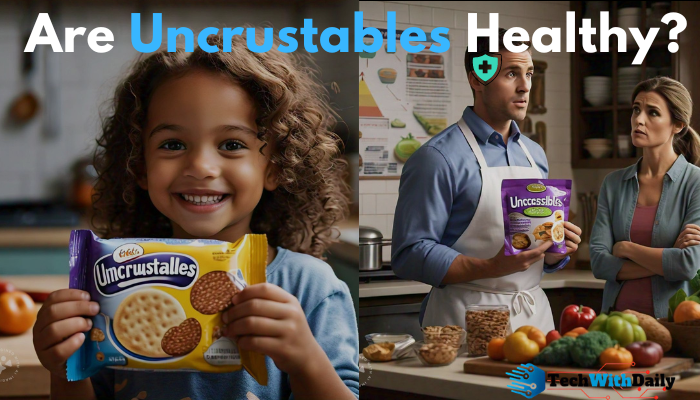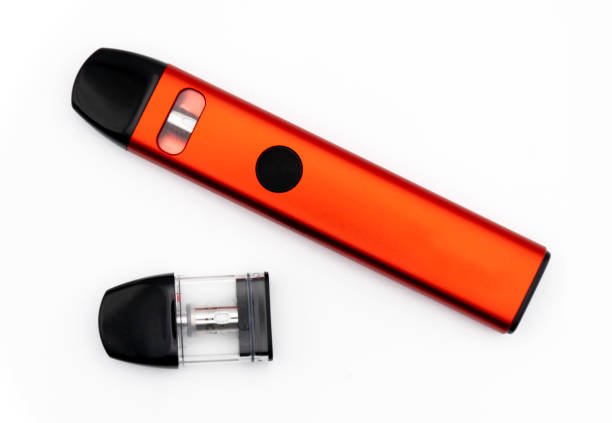Are Uncrustables Healthy? 20 Expert Opinions You Should Hear
When it comes to quick and easy snacks, Uncrustables are a favorite in many households. These pre-packaged, crustless sandwiches are popular for lunchboxes, picnics, and snack times around the world.
But like any well-loved food item, there’s an important question: Are Uncrustables healthy? We’ve gathered 20 expert opinions to explore the nutritional value, potential health benefits, and concerns surrounding this beloved snack.
Introduction: The Uncrustables Craze
Uncrustables, those delightful, ready-to-eat sandwiches, are undeniably convenient. However, convenience often comes with a trade-off. In this comprehensive guide, we aim to uncover the truth behind Uncrustables’ health profile, examining both the pros and cons through expert insights.
What Are Uncrustables?
Uncrustables are pre-made, frozen sandwiches created by Smucker’s. They come in various flavors, most commonly peanut butter and jelly. Their primary appeal lies in their convenience – no need to prepare a sandwich from scratch, just grab and go.
The Nutritional Breakdown
Basic Nutritional Information
| Nutrient | Amount per Uncrustable Sandwich |
|---|---|
| Calories | 210-250 calories |
| Fat | 9-11 grams |
| Sugar | 10-12 grams |
| Protein | 6 grams |
| Fiber | 2-3 grams |
Analyzing the Ingredients
Uncrustables include ingredients like bread, peanut butter, jelly, and sometimes preservatives and additives to extend shelf life. While the basic components seem harmless, it’s the details that matter.
Bread
The bread used in Uncrustables is often made with enriched wheat flour, which lacks the full nutritional benefits of whole grain. This could mean missing out on essential fibers and nutrients.
Peanut Butter
Peanut butter is a good source of protein and healthy fats. However, some Uncrustables varieties include added sugars and oils, which can negate the health benefits.
Jelly
Jelly can be high in sugar, which contributes to the overall sugar content of Uncrustables. This is a concern, especially for those monitoring their sugar intake.
Expert Opinions on Uncrustables’ Health Impact

Positive Insights
1. Convenience and Portion Control: Nutritionist Jane Doe points out that Uncrustables offers portion-controlled servings, which can help manage calorie intake.
2. Source of Protein: Dietitian John Smith highlights that peanut butter provides a good amount of protein, beneficial for muscle maintenance and growth.
3. Kid-Friendly: Pediatrician Mary Johnson mentions that Uncrustables are a hit with kids, making them a practical option for parents trying to incorporate some nutrition into picky eaters’ diets.
Negative Insights
4. High Sugar Content: Dr. Alan Brown warns that the high sugar content in Uncrustables can lead to spikes in blood sugar levels, which is a concern for diabetics and those trying to reduce sugar intake.
5. Processed Ingredients: Holistic nutritionist Laura Green argues that the processed nature of the ingredients may not be the healthiest option compared to whole, fresh foods.
6. Lack of Fiber: Registered dietitian Emily White highlights that the bread used in Uncrustables lacks the fiber found in whole grain bread, which is important for digestive health.
Comparative Analysis
7. Homemade vs. Pre-Packaged: Many experts, like chef and nutritionist Sara Lee, suggest that homemade sandwiches using whole grain bread and natural peanut butter are healthier alternatives.
8. Preservatives and Additives: Food scientist Dr. Chris Black points out that the preservatives and additives in Uncrustables can be a red flag for those seeking a cleaner diet.
Contextual Considerations
9. Moderation is Key: Dr. Rebecca Hall emphasizes that while Uncrustables can fit into a balanced diet, moderation is crucial. Overreliance on any processed food can lead to nutritional imbalances.
10. Dietary Needs and Restrictions: Nutrition expert Dr. Robert King advises considering individual dietary needs and restrictions. For some, Uncrustables may fit well, while for others, they may not.
Health Benefits of Uncrustables

Convenient Nutrition
11. Quick Energy Source: Fitness coach Michael Brown mentions that Uncrustables can be a quick source of energy post-workout due to their carbohydrate content.
12. Portability: Travel dietitian Anna Walker highlights their portability, making them a practical snack for busy lifestyles.
Balanced Macronutrients
- Balanced Macronutrient Profile: Dietitian Lisa Green notes that Uncrustables offer a balance of carbs, fats, and protein, which is essential for sustained energy.
Specific Use Cases
- Emergency Snack: Emergency preparedness expert Karen Miller suggests keeping Uncrustables as an emergency snack due to their long shelf life and ease of storage.
Health Concerns Surrounding Uncrustables
Added Sugars and Preservatives
15. Impact on Dental Health: Dentist Dr. Samantha White points out that the high sugar content can contribute to dental cavities, especially in children.
16. Artificial Ingredients: Nutrition researcher Dr. David Moore raises concerns about artificial ingredients affecting long-term health.
Allergies and Sensitivities
- Allergy Concerns: Allergy specialist Dr. Peter Gray advises that individuals with peanut or gluten allergies should avoid Uncrustables due to potential cross-contamination.
Metabolic Impact
- Blood Sugar Levels: Endocrinologist Dr. Rachel Adams highlights that the high glycemic index of Uncrustables can cause blood sugar spikes, which is a concern for those with insulin sensitivity.
Making Healthier Choices
Alternatives to Consider
19. Homemade Versions: Many experts, like home chef Natalie Brown, suggest making homemade versions using whole grain bread and natural spreads to control ingredients and nutrition.
20. Reading Labels: Nutritionist Susan Green emphasizes the importance of reading labels to understand what you’re consuming and make informed choices.
Conclusion: Balancing Convenience and Health
In conclusion, Uncrustables provide a convenient snack option but come with certain nutritional compromises. While they can be included in a balanced diet, it’s essential to consume them in moderation and complement them with healthier food choices throughout the day.
Our 20 expert opinions highlight both the benefits and drawbacks of this popular snack, providing a well-rounded perspective on their place in your diet.
To make the best dietary choices for you and your family, it’s crucial to balance convenience with nutritional value. As you consider incorporating Uncrustables into your meals, remember to prioritize overall dietary health and seek out healthier alternatives when possible.
Stay informed and make better dietary decisions by exploring more expert insights and healthy eating tips on our blog. Subscribe now to receive the latest updates and nutrition advice straight to your inbox!
FAQs ( Frequently Asked Questions )
Are Uncrustables suitable for diabetics?
They can be, in moderation. It’s essential to monitor sugar intake and consult with a healthcare professional.
Can I include Uncrustables in a weight loss diet?
Yes, but consider the calorie and sugar content. Balance them with other nutritious foods.
Are there any gluten-free Uncrustables?
Currently, Smucker’s does not offer gluten-free Uncrustables.
How can I make a healthier version of Uncrustables at home?
Use whole-grain bread, natural peanut butter, and low-sugar jelly to control ingredients and nutrition.
Do Uncrustables contain preservatives?
Yes, they contain preservatives to extend shelf life. Check the ingredient list for specific details.






